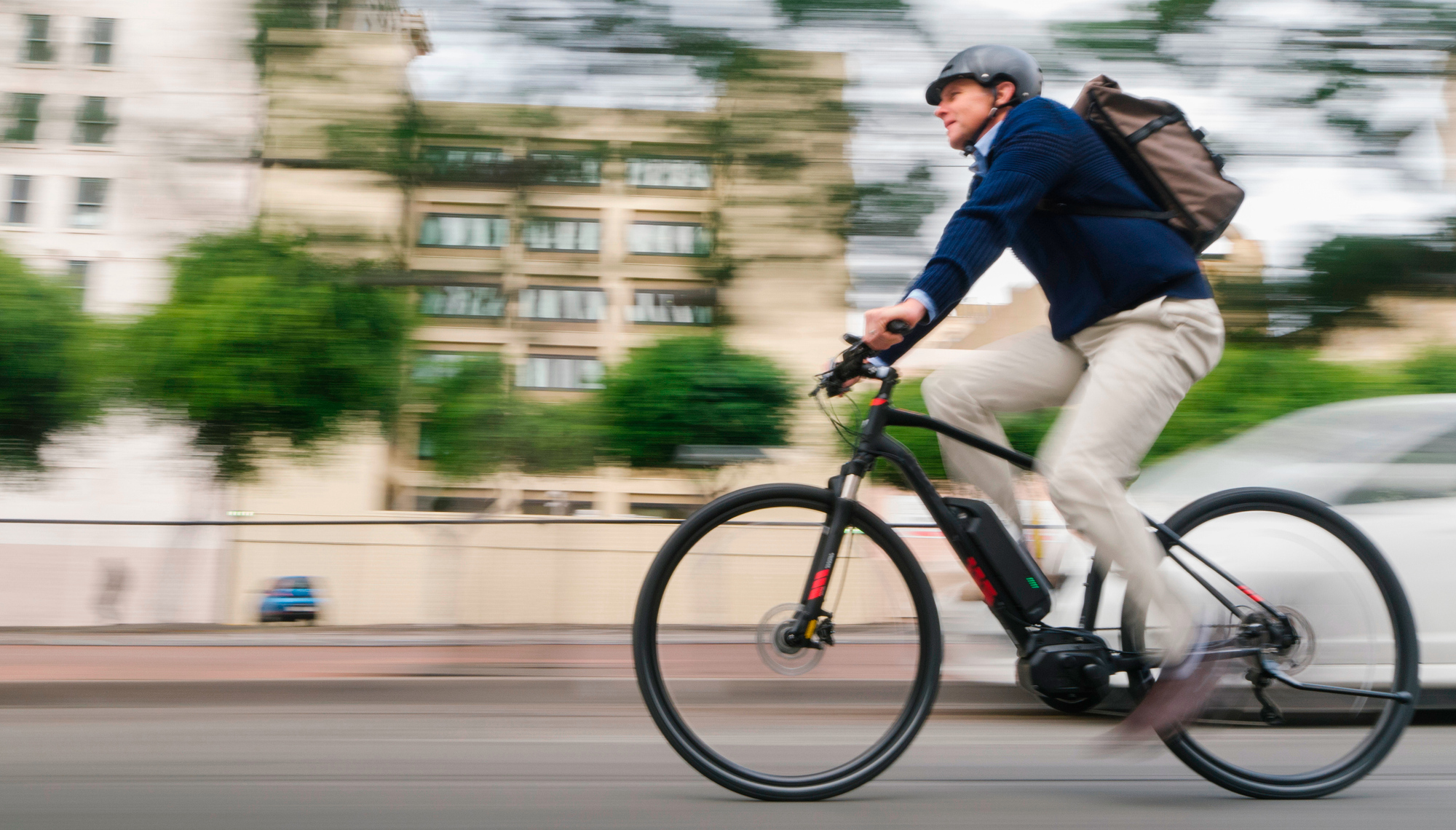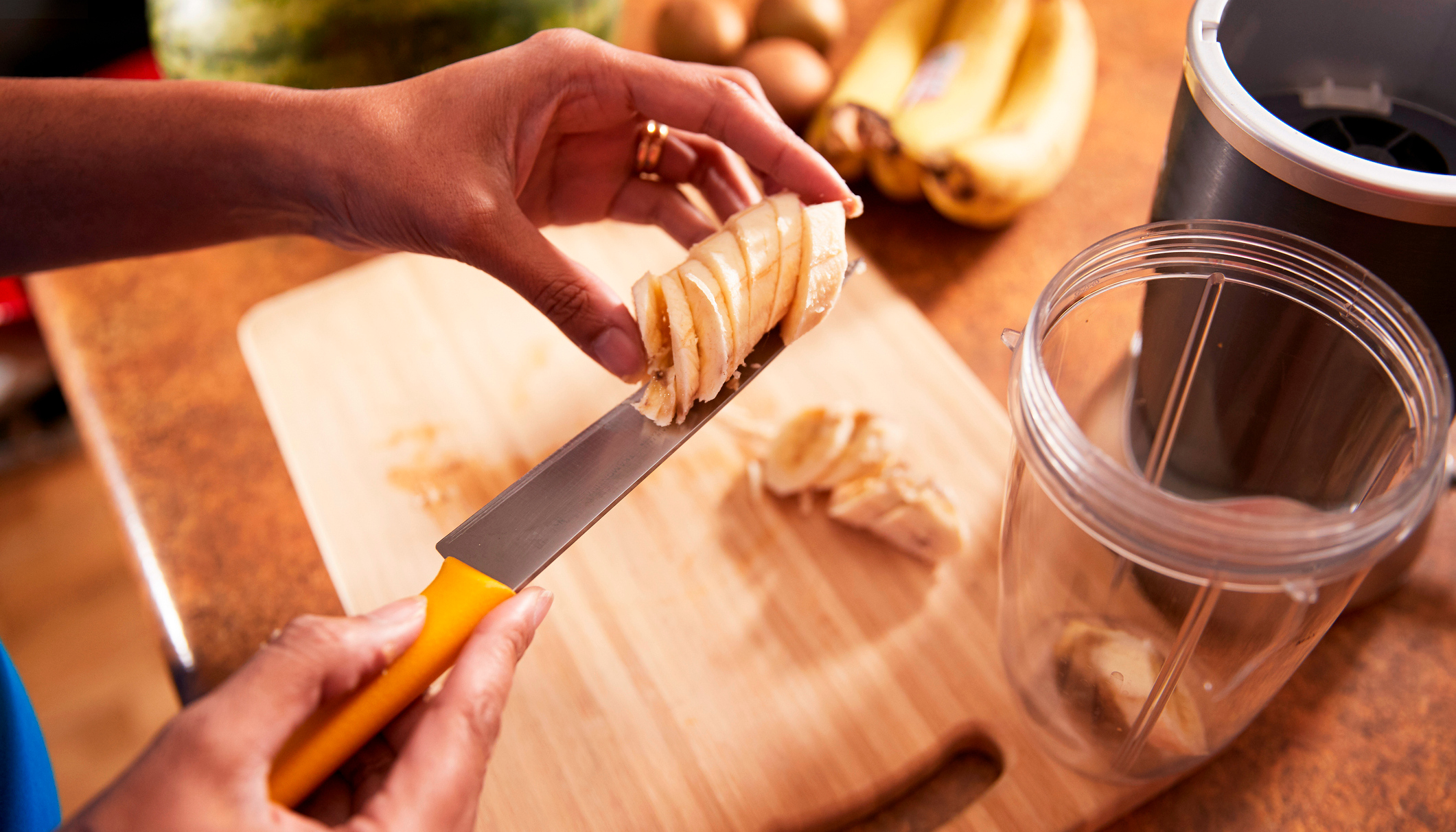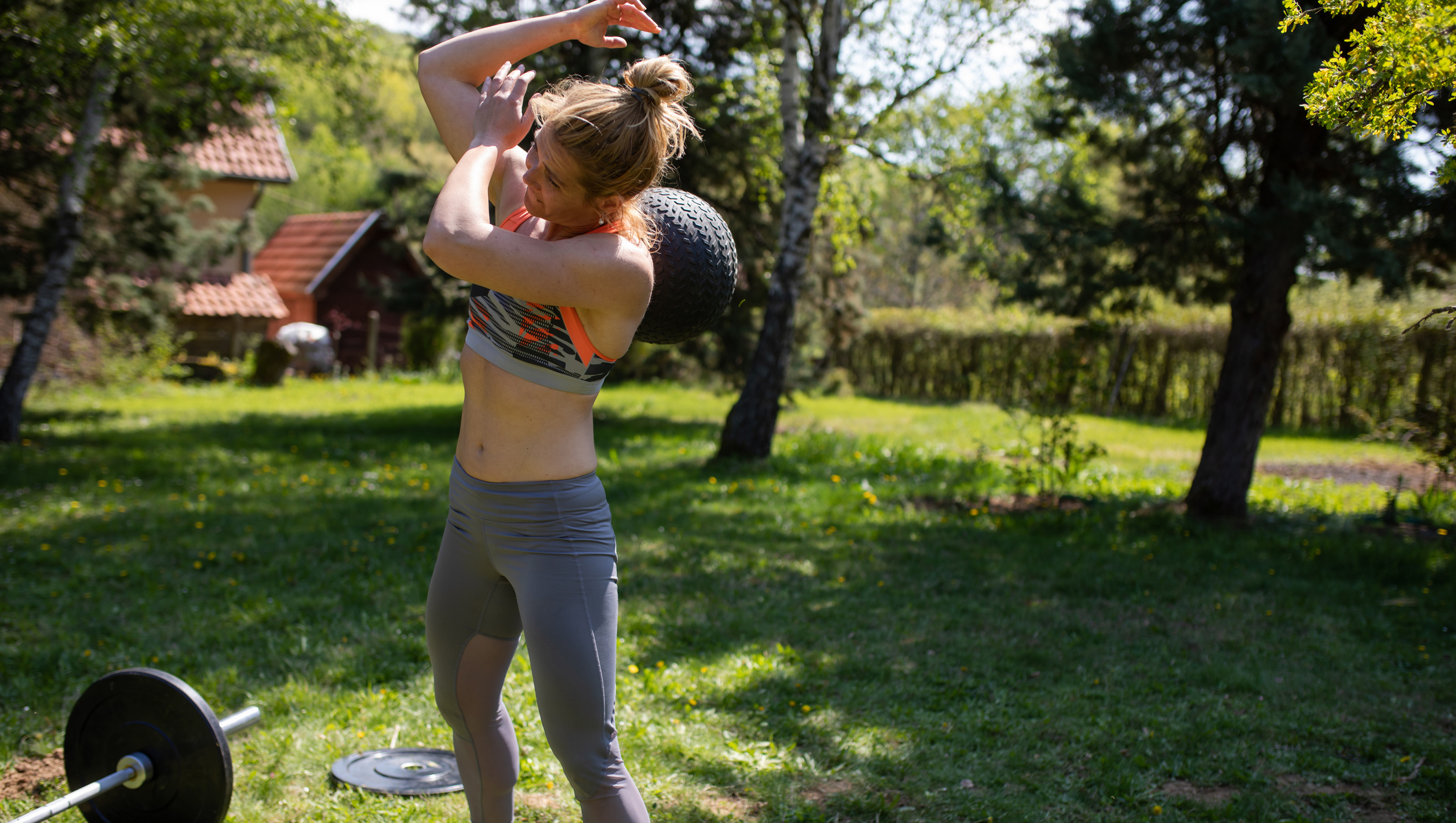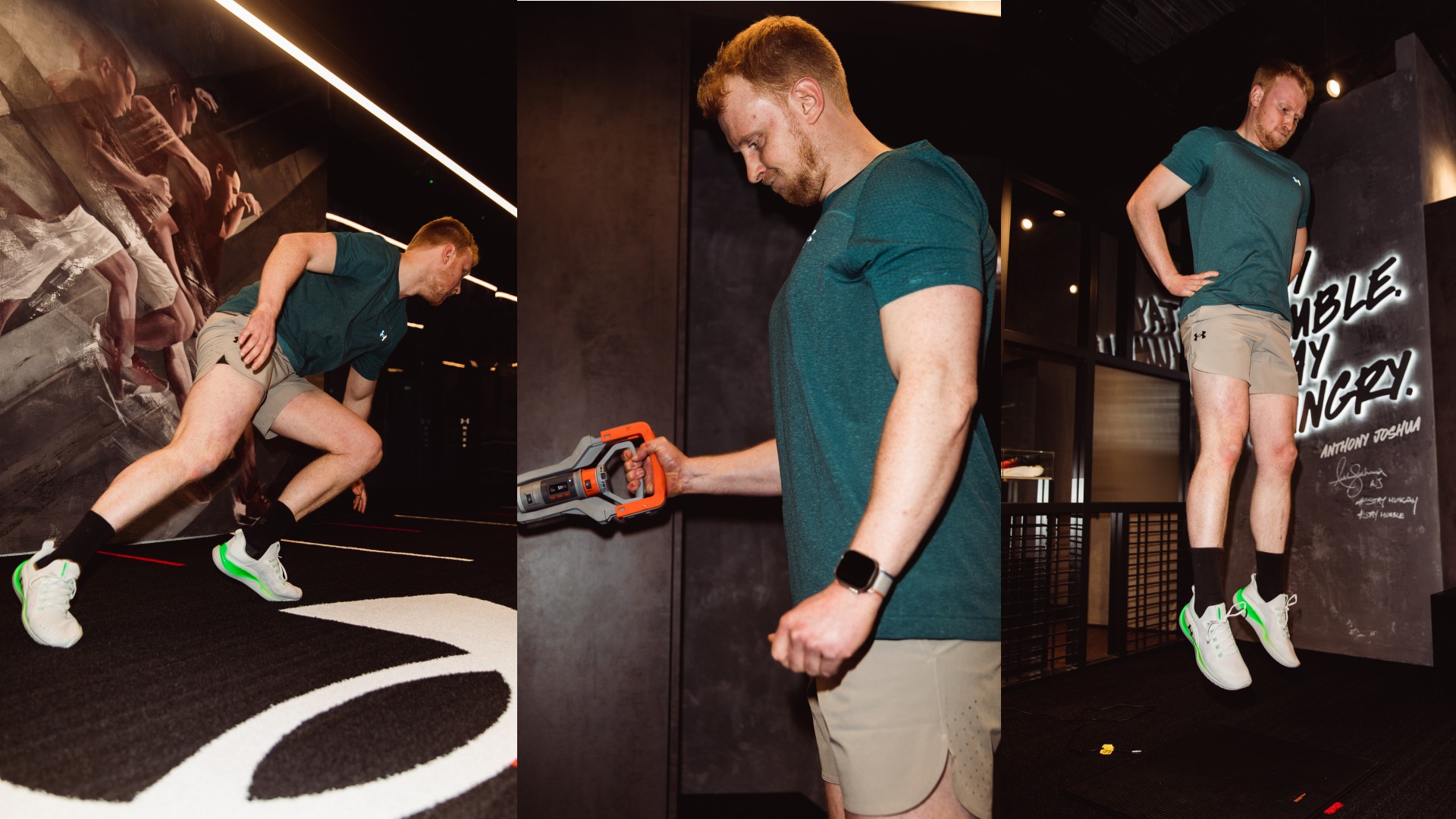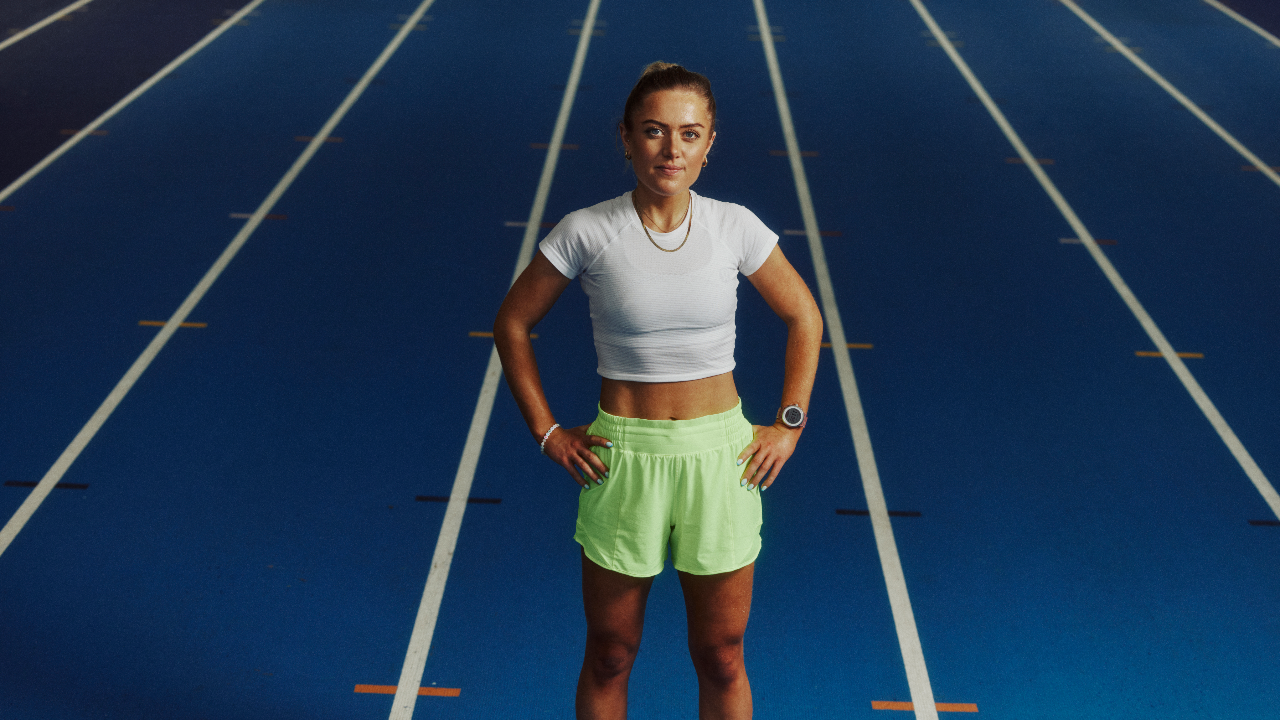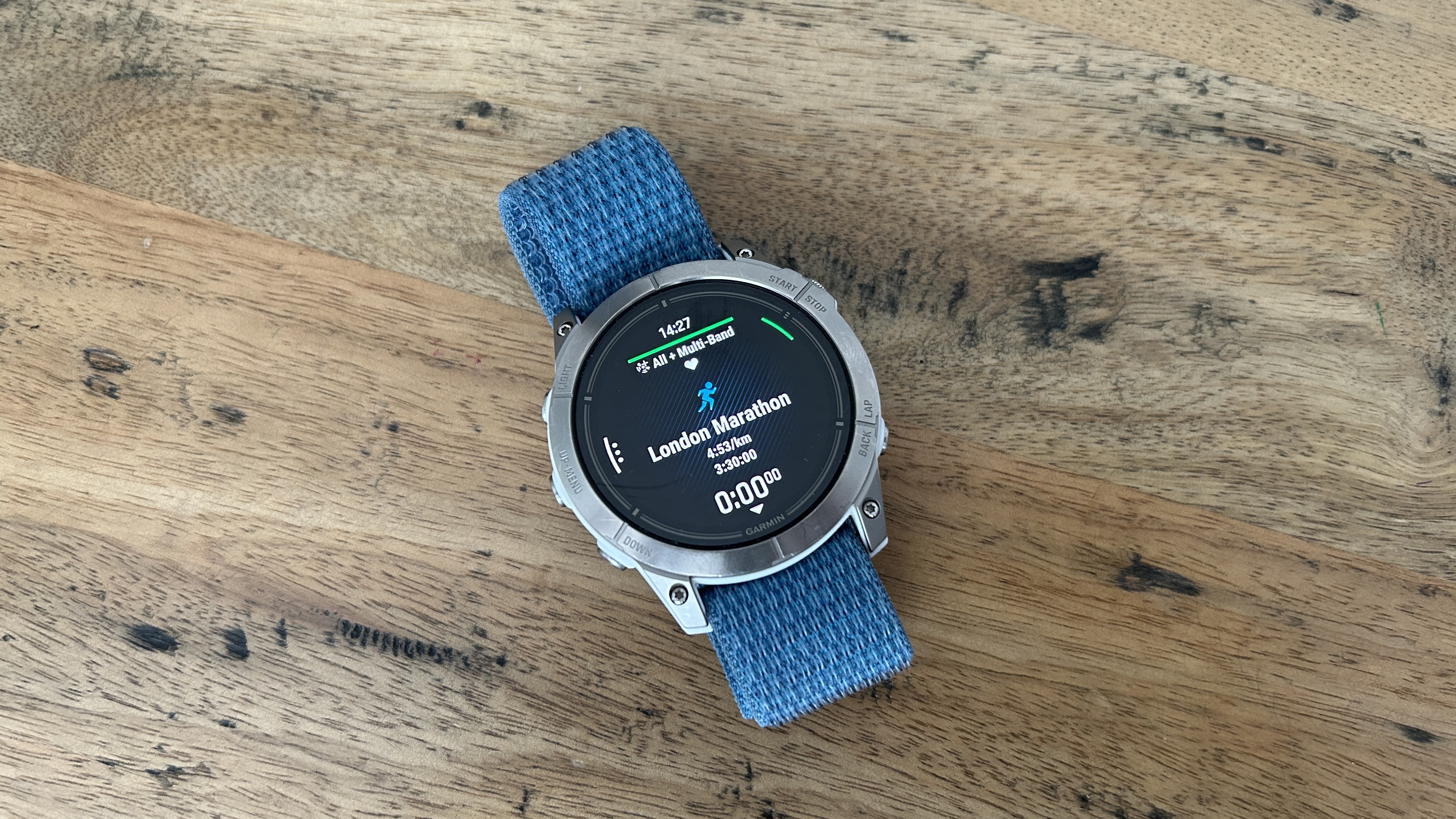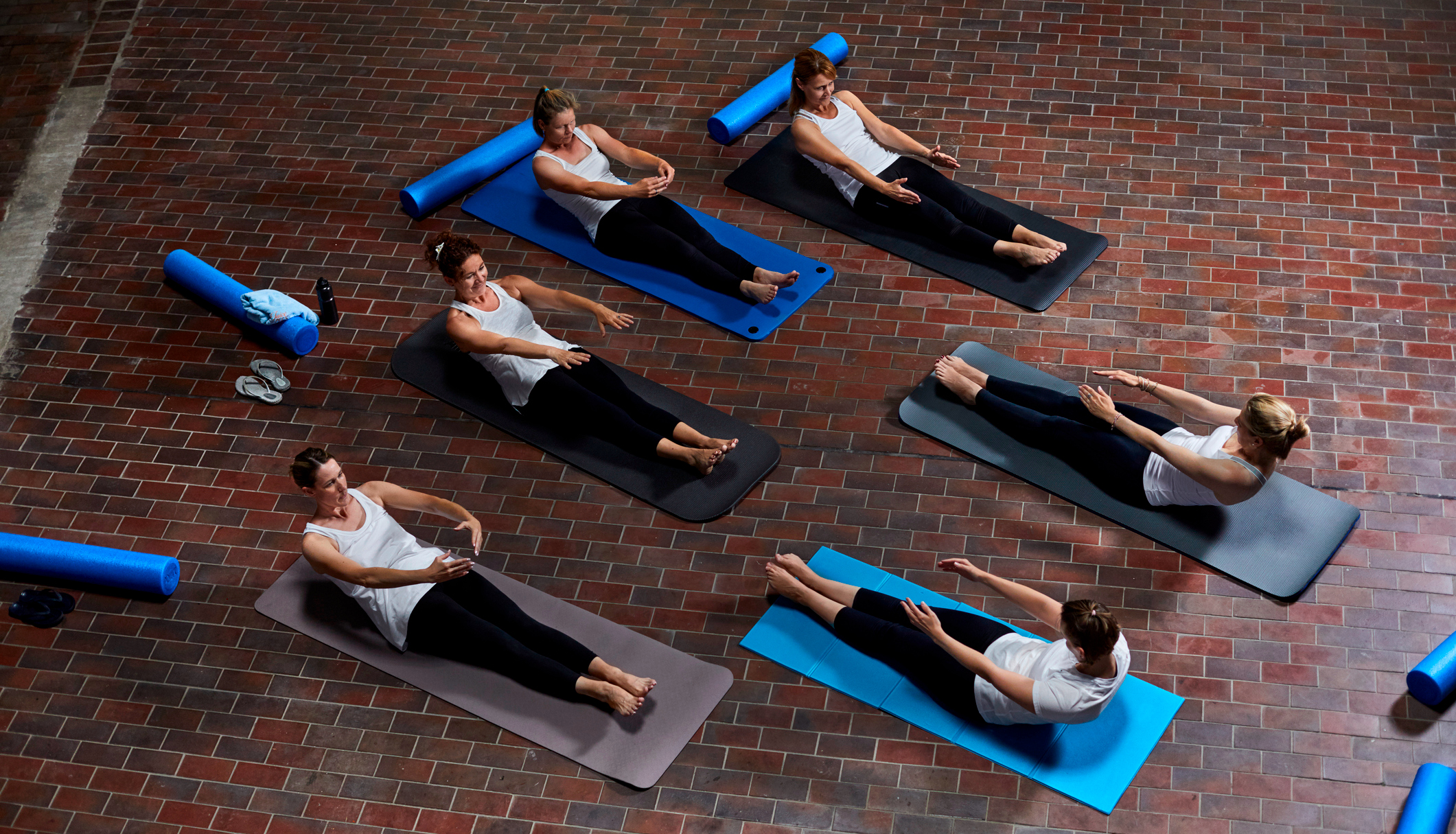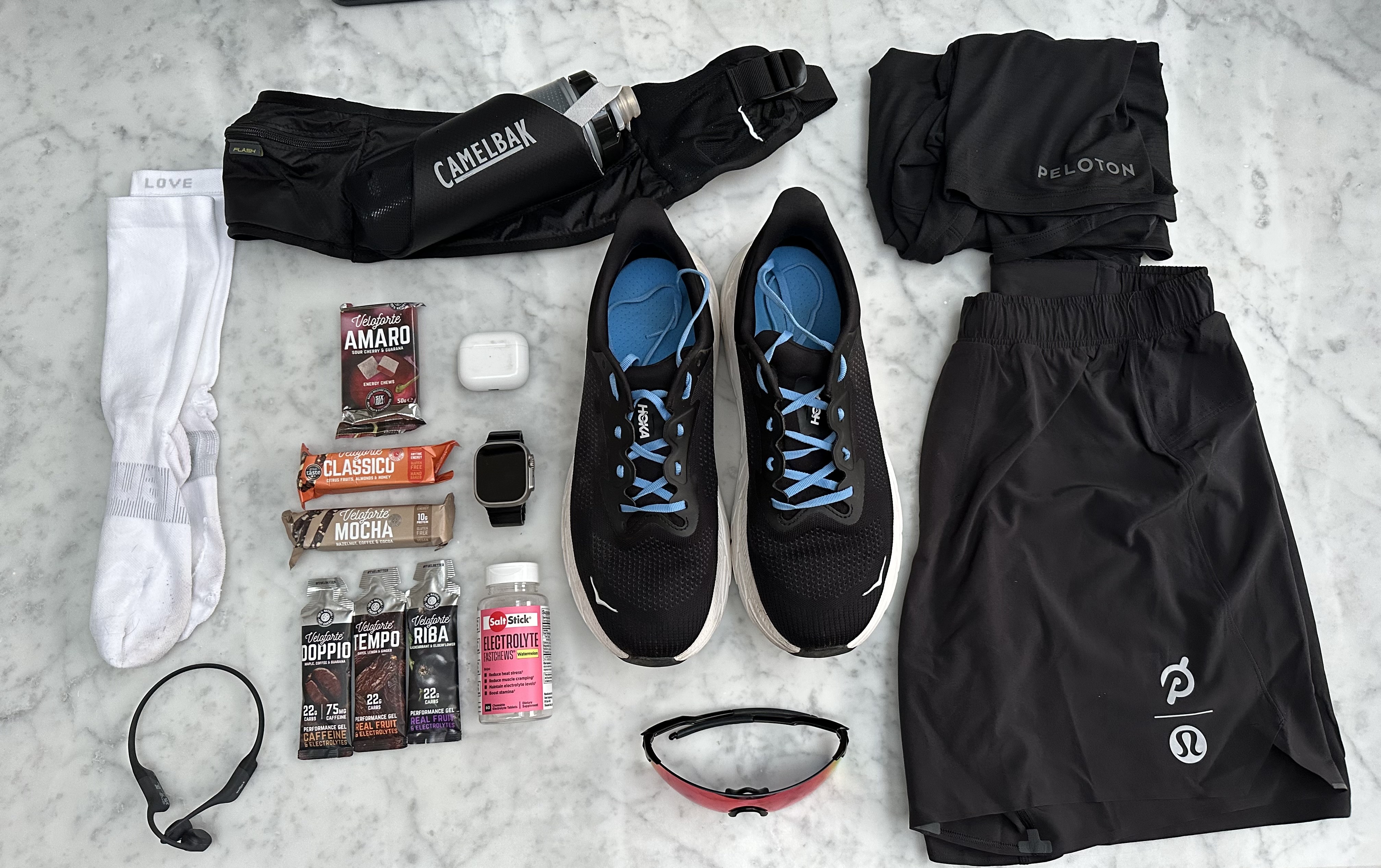New To HIIT? Try This Beginner HIIT Workout From An F45 Trainer
If you’re hesitant about HIIT, this beginner-friendly workout takes less than 10 minutes and is a great place to start
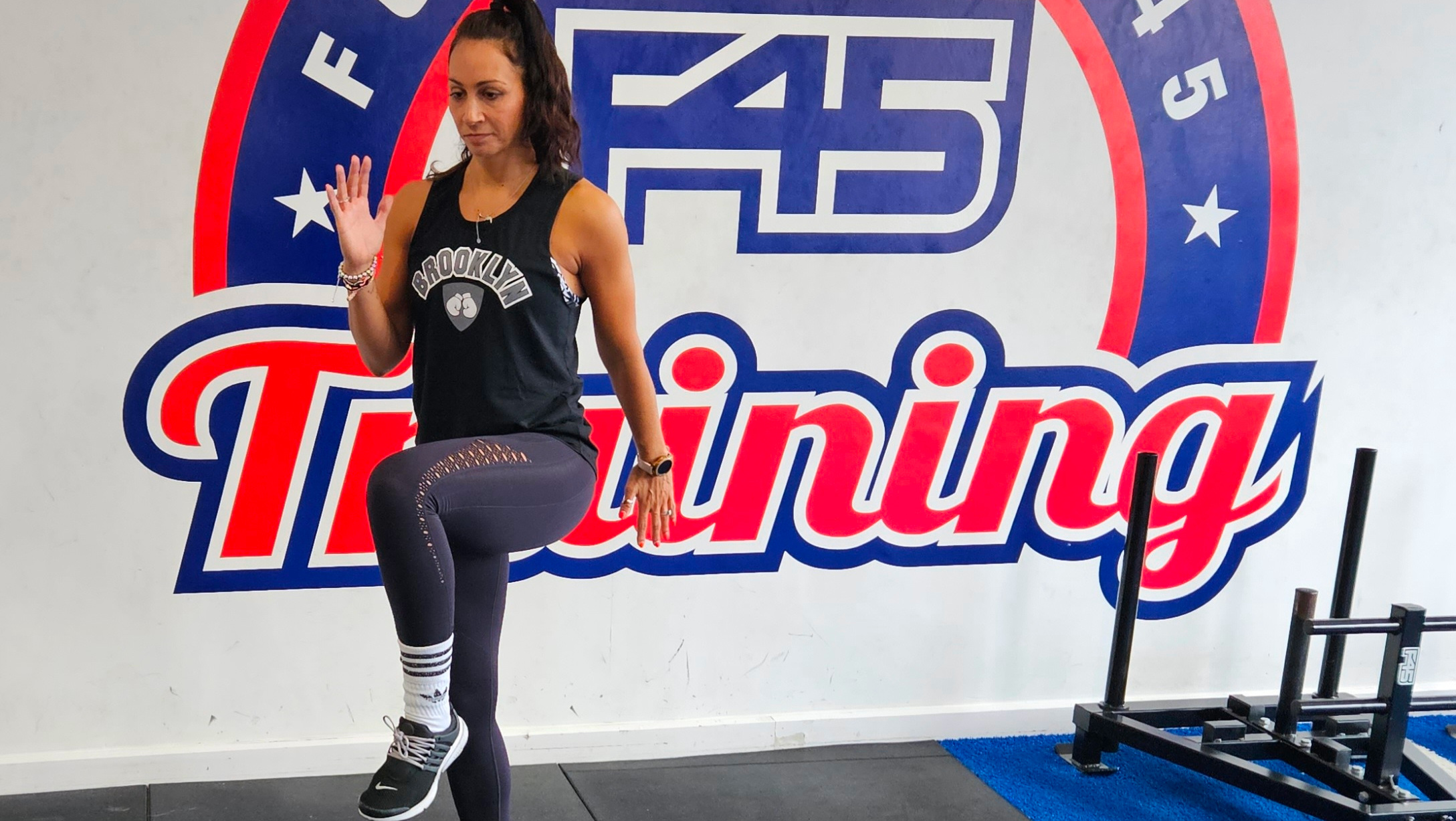
High-intensity interval training (HIIT) can be off-putting or simply too hard for beginners if they aren’t careful. This beginner HIIT workout from Natasha Ram, trainer at F45 Mill Hill in north London, has been designed to be adaptable to all levels of fitness, including absolute HIIT novices. The beauty of HIIT is that you can lengthen the workout or perform harder variations of each exercise as your fitness progresses.
“A HIIT workout can be as short or as long as you make it,” says Ram. “HIIT normally works on a timed basis rather than reps, so you can increase the number of intervals for a longer workout as your fitness improves.
“During your first HIIT workout, you should aim to give it your maximum effort for the first couple of intervals. Or if this feels too much, start with 70% effort until you feel comfortable with each movement, then ramp it up during your next session.
“If you are trying HIIT for the first time, slowly build your work-to-recovery ratio. You might start with 15 seconds of work to 45 seconds of recovery and, over several weeks, work towards 45 seconds of work to 15 seconds of recovery. As your fitness improves you can also incorporate weights like dumbbells or kettlebells.”
Beginner HIIT Workout
It’s always essential to warm up before any exercise, but especially before high-intensity workouts. This warm-up routine is ideal—we recommend committing it to memory and making a habit of performing it before any session.
Once you’re ready to begin, do the six exercises below in order, working for 15-20 seconds and then resting for 45 seconds to recover.
1 Squat jump
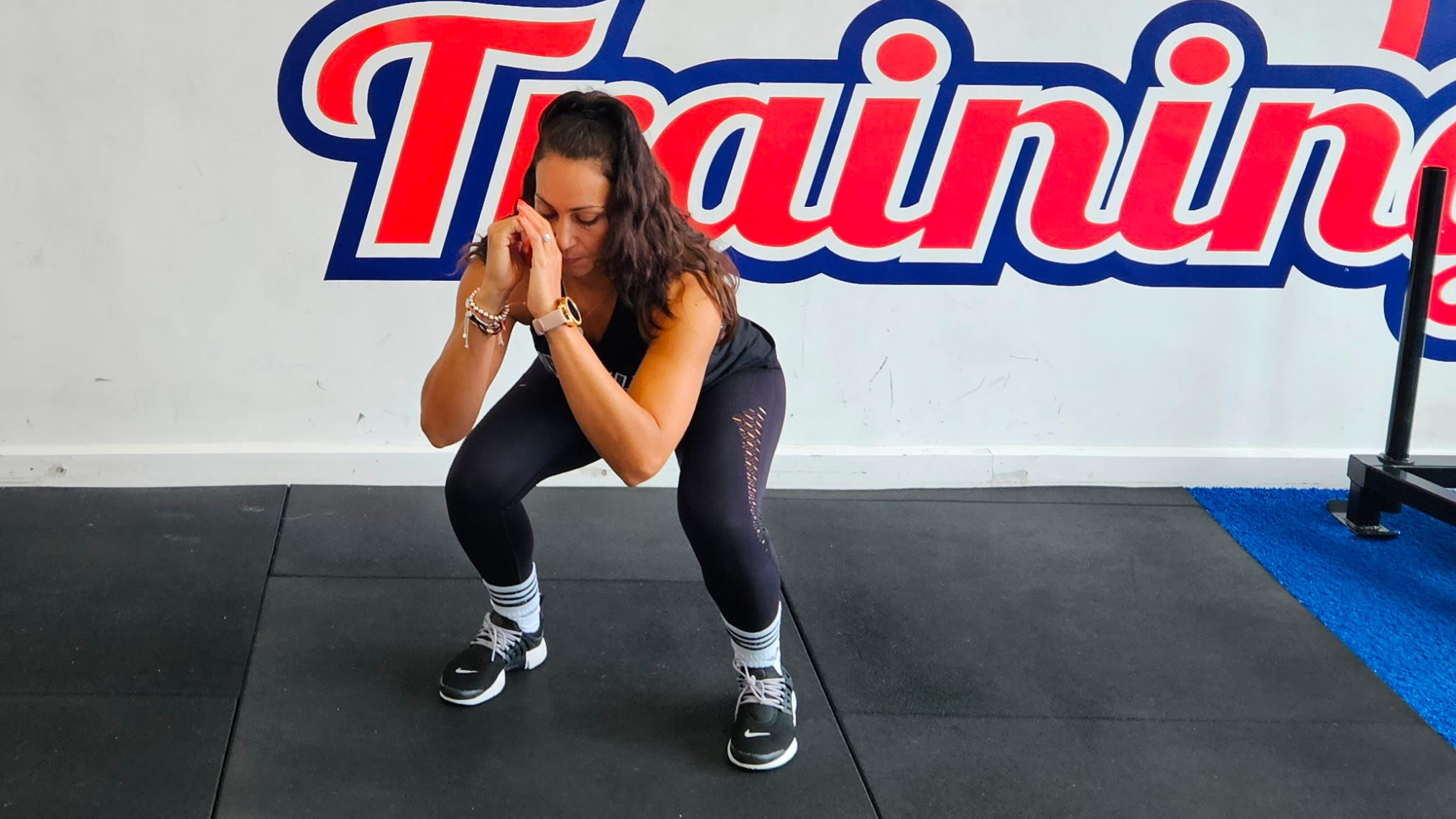
Time 15-20sec Rest 45sec
Get the Coach Newsletter
Sign up for workout ideas, training advice, reviews of the latest gear and more.
Stand with your feet shoulder-width apart and your toes pointing slightly outwards. Lower your body by bending your knees and pushing your hips back as if you’re sitting in a chair. Keep your chest facing forward and your back straight, and make sure your knees do not go forward past your toes.
Once your thighs are parallel with the floor, or as close as you can get to that position, explode upwards by pushing through your heels. Jump as high as you can, extending your arms above your head to help keep your balance. Land softly by bending your knees and hips to absorb the impact. As you land, go immediately into another squat to prepare for the next jump.
To make this exercise easier, rise onto your toes instead of jumping.
2 Inchworm into push-up
Time 15-20sec Rest 45sec
This exercise helps strengthen your core, arms, chest, and shoulders while also working on flexibility. Stand with your feet hip-width apart and your arms at your sides. Take a deep breath in, and as you exhale, hinge at your hips to bend forward at the waist. Keep your legs straight as you lower your hands toward the floor.
Walk your hands out in front of you until your body forms a straight line from head to heels and your hands are directly under your shoulders. From this position, perform a push-up by bending your elbows to lower your chest toward the floor, keeping your body in a straight line throughout.
You can make this easier by dropping your knees first. Push back up, walk your hands back toward your feet and stand up.
3 Mountain climber
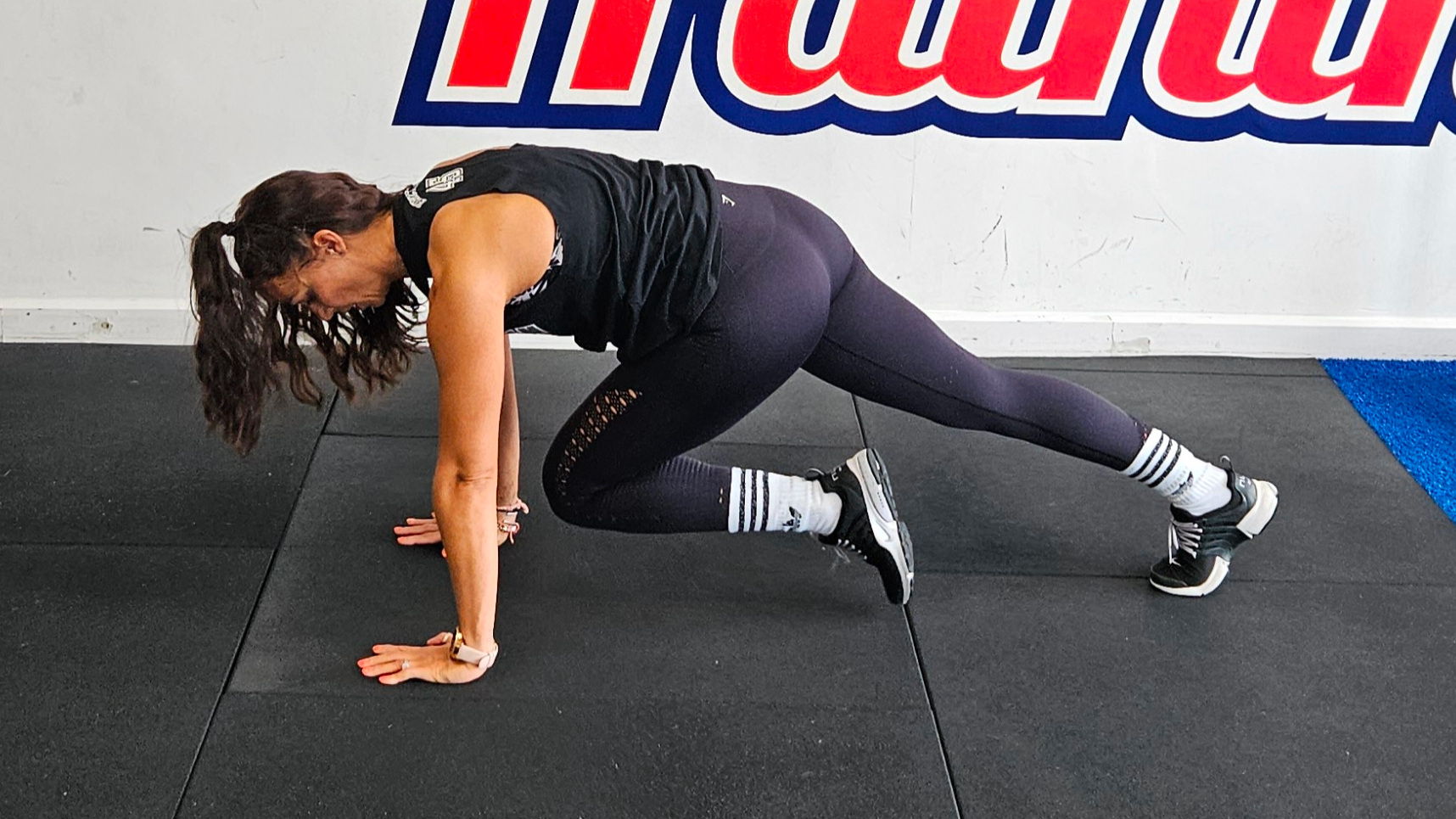
Time 15-20sec Rest 45sec
Begin in the starting position for a push-up, with your hands directly under your shoulders and your body in a straight line from head to heels. Engage your core by tensing your midsection. Keeping your back straight throughout, bring your right knee as close to your chest as you can. Quickly return your right leg to the starting position while bringing your left knee toward your chest. Keep alternating your legs as if you’re running in place, in a fast but controlled manner.
4 Plank shoulder tap
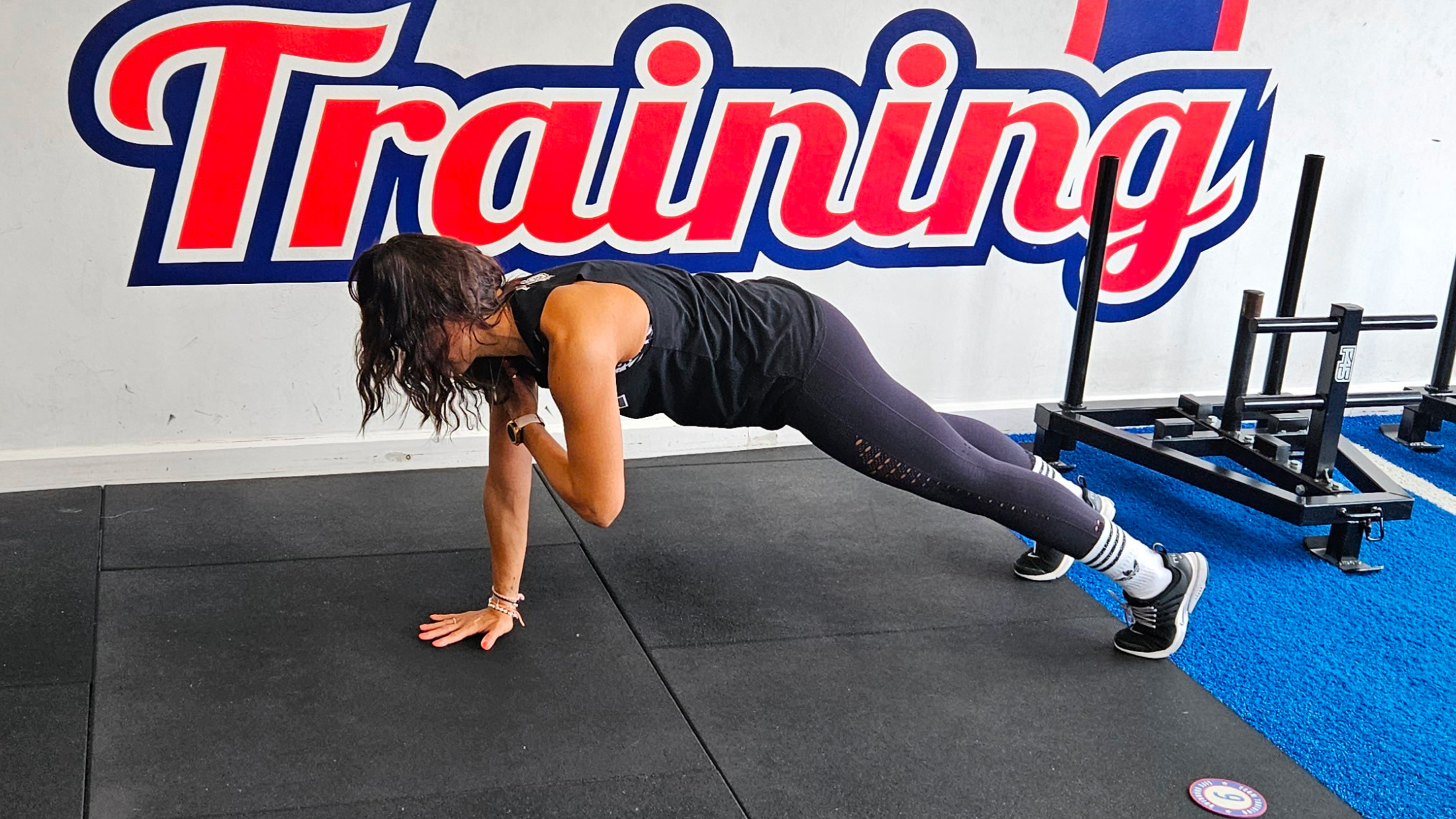
Time 15-20sec Rest 45sec
This exercise is excellent for building core stability and improving shoulder strength. Begin in the starting position for a push-up, with your hands directly under your shoulders and your body in a straight line from head to heels. Engage your core by tensing your midsection and your glutes by squeezing your butt.
Keeping your body in a straight line and your hips as still as possible, lift one hand off the floor and tap the opposite shoulder. Return your hand to the floor and repeat on the opposite side. Continue to alternate tapping your shoulders with each hand while maintaining a strong plank position.
To make this exercise easier, perform the move on your knees instead of your toes.
5 Burpee
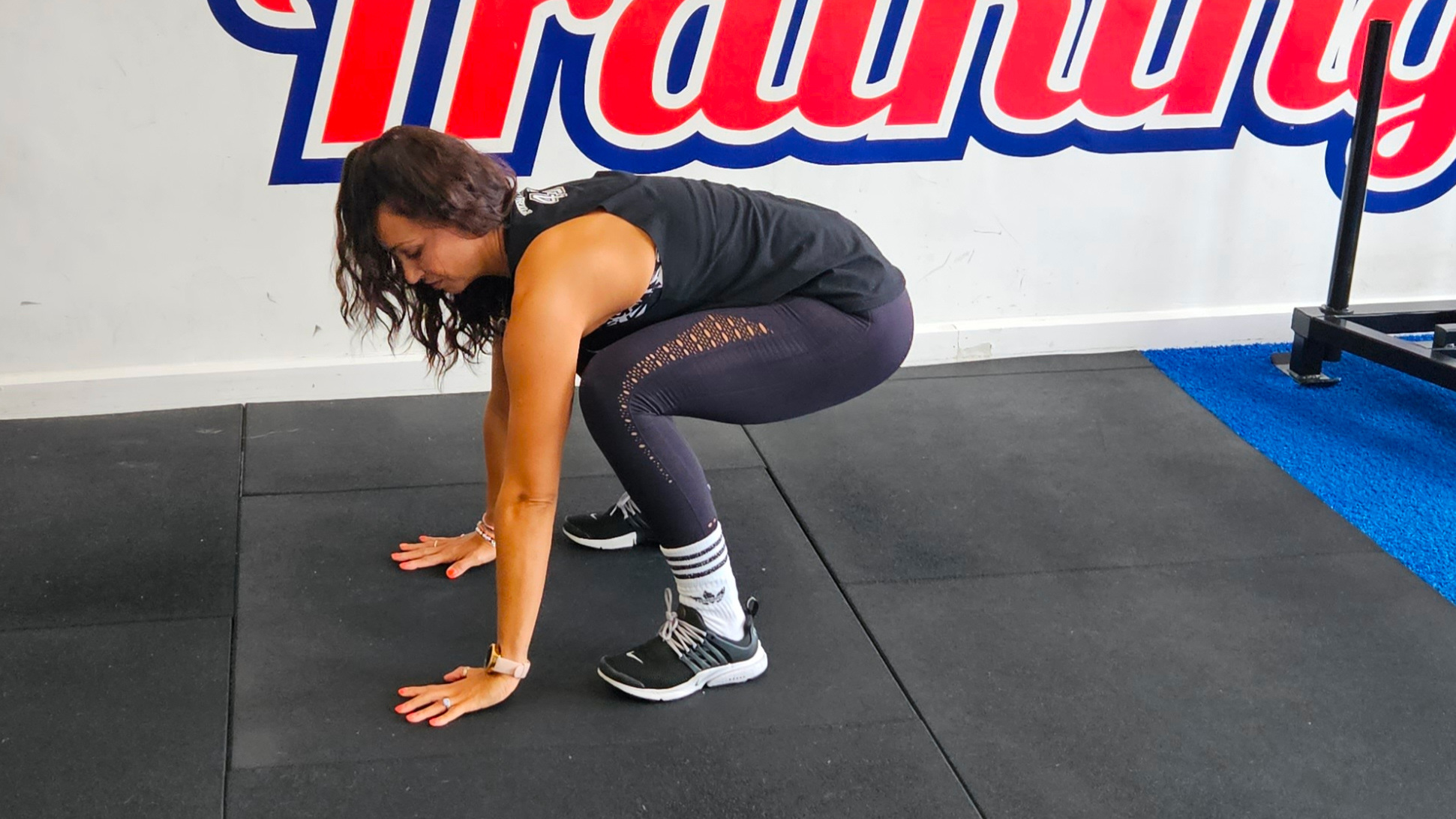
Burpees can be challenging, but they are a highly effective exercise for improving cardiovascular fitness, and building strength and coordination.
Stand with your feet shoulder-width apart. Bend at your hips and your knees to place your hands on the floor just in front of your feet. Jump your feet back so you end up in a push-up position. Bend your elbows to lower your chest to the floor. Push yourself back up, jump your feet forward so they’re next to your hands, then explosively jump straight up raising your arms overhead. Land softly on the balls of your feet and start the next repetition.
You can make burpees easier by skipping the push-up, or dropping to your knees to do them, and/or by walking the feet out if needed.
6 Triple-switch high knee
High knees are effective for improving cardiovascular fitness, strengthening your core and enhancing lower-body endurance. You can adjust the intensity by increasing your pace or the height of your knee lifts.
Stand with your feet hip-width apart. Run in place, lifting your knees so your thighs are parallel with the floor or as high as you can. Raise your left arm as you lift your right knee, and vice versa. Keep your core engaged and your back straight. Every third high knee, pause for a moment with the knee raised, and then continue.

Nick Harris-Fry is a journalist who has been covering health and fitness since 2015. Nick is an avid runner, covering 70-110km a week, which gives him ample opportunity to test a wide range of running shoes and running gear. He is also the chief tester for fitness trackers and running watches, treadmills and exercise bikes, and workout headphones.

